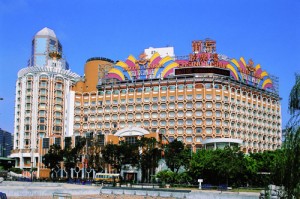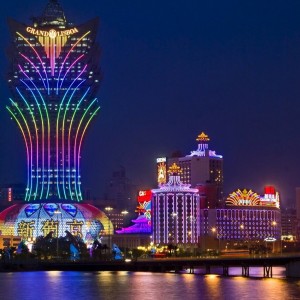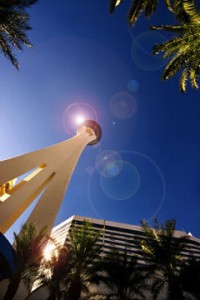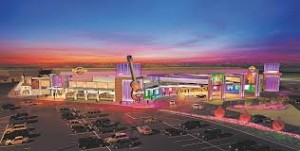In what may come as bad news to casino operators, the Macao government is placing a quota on the number of mainland visitors the gaming enclave will allow per year: 21 million. On the  other hand, the government is pivoting towards a greater appeal to international visitors, giving with one hand what it takes away with the other. Having proposed this tourism cap, the Macanese government must send it to Peking for approval. Macao’s government is aiming for a 2:1 ratio of domestic to overseas visitors. Rationalized Secretary for Social Affairs & Culture Alexis Tam, “during the Chinese New Year there were 147,000 visitors per day. This number is well above the city’s capacity according to the [Institute for Tourism Studies] study and if this trend continues the quality of life of residents will be affected.”
other hand, the government is pivoting towards a greater appeal to international visitors, giving with one hand what it takes away with the other. Having proposed this tourism cap, the Macanese government must send it to Peking for approval. Macao’s government is aiming for a 2:1 ratio of domestic to overseas visitors. Rationalized Secretary for Social Affairs & Culture Alexis Tam, “during the Chinese New Year there were 147,000 visitors per day. This number is well above the city’s capacity according to the [Institute for Tourism Studies] study and if this trend continues the quality of life of residents will be affected.”
The local government also remains set on a total smoking ban in Macao’s casinos. “The government is feeling the pressure of the decline in gaming revenue but we are going to continue to invest in the health of the Macau population. Regarding the full smoking ban on casinos we are still working on this matter and we will not stop,” said Tam, laying down the law. This prompted opposition from Angela Leong, the power behind Stanley Ho‘s Sociedade de Jogos de Macau. Suggesting that the money go to higher salaries and benefits, she said, “This policy is very good for public health but the casino operators have already invested [$130 million] to construct smoking lounges. We want the government to have a clear policy so that we do not have to waste our resources building lounges that are demolished sometime after.”
Meanwhile, domestic travel to Macao is becoming more of an impulse purchase. This  occludes the ability of gaming analysts to project trends in the enclave, currently suffering an unprecedented (if artificially induced) economic swoon. Union Gaming analysts see this as part of an underlying shift in the customer mix: “higher value customers have been replaced with lower, more value-oriented, customers. “It is these value-oriented customers who have been priced out of the market for a period of years who are now coming to Macau given a greater availability of hotel rooms (and at lower prices) and given lower table games minimums … Quite simply, a large cross-section of the VIP market has received the message loud and clear that now is not the time to be gambling.”
occludes the ability of gaming analysts to project trends in the enclave, currently suffering an unprecedented (if artificially induced) economic swoon. Union Gaming analysts see this as part of an underlying shift in the customer mix: “higher value customers have been replaced with lower, more value-oriented, customers. “It is these value-oriented customers who have been priced out of the market for a period of years who are now coming to Macau given a greater availability of hotel rooms (and at lower prices) and given lower table games minimums … Quite simply, a large cross-section of the VIP market has received the message loud and clear that now is not the time to be gambling.”
* Among the things the Great Recession took out of Las Vegas was a big chunk of gambling customers. While 80% came here primarily to challenge the odds in 2010, now it’s down to  71%. At the same time, more people are partaking of health-and-fitness amenities, as Vegas’
71%. At the same time, more people are partaking of health-and-fitness amenities, as Vegas’
identity continues to morph with the early 21st century. However — contrary to casino promotions and amenities that push Vegas as one big-ass spring break — the average customer is described as “45-year-old married people making $40,000 or more, with one-third of them coming from neighboring California.”
They’re budgeting a lot on food and drink ($282) but still reserving their largest share of wallet ($530) for gambling. The survey, conducted at the behest of the Las Vegas Convention & Visitors Authority, does offer some support for the youth fixation of Vegas casinos, showing that in the 2010-2014 period, 21-29 year olds went from 10% to 17% of visitors … although it still seems as though the Las Vegas Strip caters to them disproportionately. And, in a surprising bit of data, given the Strip’s reliance upon convention trade, only 8% of visitors were conventioneers. Still, they seem to be doing their bit, spending and filling hotel rooms.
* Although it doesn’t have table games or a hotel, Hard Rock Rocksino Northfield Park  is close behind Horseshoe Casino Cleveland as Ohio‘s top venue. Sitting right between Cleveland and Akron may be the secret ingredient for success and a starry series of concerts can’t hurt, either. Whatever the reason, Ohio Lottery Commission Director Dennis Berg thinks its success is sui generis: “The Hard Rock name is powerful and they did an excellent job. I’m not sure they can mimic the model everywhere in the state.” This certainly wasn’t the scenario Caesars Entertainment and Penn National Gaming envisioned when they tried to carve up Ohio as an oligarchy for their two companies.
is close behind Horseshoe Casino Cleveland as Ohio‘s top venue. Sitting right between Cleveland and Akron may be the secret ingredient for success and a starry series of concerts can’t hurt, either. Whatever the reason, Ohio Lottery Commission Director Dennis Berg thinks its success is sui generis: “The Hard Rock name is powerful and they did an excellent job. I’m not sure they can mimic the model everywhere in the state.” This certainly wasn’t the scenario Caesars Entertainment and Penn National Gaming envisioned when they tried to carve up Ohio as an oligarchy for their two companies.
* New Jersey‘s Casino Reinvestment Development Authority got hit with a cyber-attack last Sunday, disabling the site for a few hours. However, the CRDA says no serious damage was done, beyond the posting of some juvenile pro-ISIS messages. It sounds like we’re dealing with small-fry hackers here.
* After being personnel-starved for years, the Nevada Gaming Control Board is being given a budget that allows it to add seven more technicians. It’s past time.


I read the LVCVA survey and it said that 20% of the visitors were 40 to 49 years old and 14% were 50 to 59 year old. I would assume more people of this age bracket would gamble more than the younger generation who go to Las Vegas now mainly for the nightclubs.
Never thought Macao was a free enterprise zone. Peking wants to control its citizens everywhere. I see Peking eventually taking full control of the casinos in the future.